Interview: Poet Todd Colby book on 'Flushing Meadows'
|
|||||||||||||||||
|
The scholar John Rodden calls the literary interview a “fully-fledged genre.” I used to be skeptical, but after assigning my students at The College of Saint Rose to speak with an author, I’m more inclined to think the literary interview qualifies as a distinct form of performance. I put out a call on Facebook and Twitter: Would you speak to a college student about your book? I asked. Sure, they said. Review copies were sent, students selected authors, read and researched their work, and asked questions. - Daniel Nester, Contributing Word Editor |
INTERVIEW WITH POET TODD COLBY ON HIS BOOK, ‘FLUSHING MEADOWS’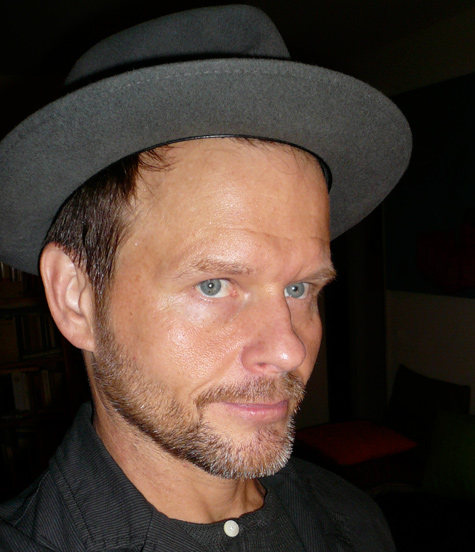 |
||||
INTERVIEWED BY
|
Author, poet, musician, artist, triathlete, and all-around talent Todd Colby is the author of poetry books Riot in the Charm Factory, Cush, Ripsnort, and Tremble and Shine. Colby took some time out of his busy schedule to exchange emails about his new collection of poems, Flushing Meadows, as well as where he gets his information from, what it means to be a poet, and other fantastical subjects. ZWACK: Your latest work, Flushing Meadows, is a collection of poems. How did this book come to be and is there any one poem that sticks out as a favorite? COLBY: I’ve been working on a collection of poems for a couple of years now and then Scary Topiary Press contacted me, asking if I had a manuscript of poems they could publish in a chapbook. I did have a bunch of poems, so I selected some of my newest work that held together as a volume of poems that resonated with each other and served the goal of having a unified book of poems. I don’t really have a favorite because that would mean I’d also have a least favorite and I like all of them on an equal level. They’re like children. How do I pick a favorite? Is that at cop-out? ZWACK: I wouldn’t say it’s a cop-out exactly. Where did the name for the title and title poem come from? What was the inspiration? COLBY: I’ve always thought the place Flushing Meadows in Queens here in NYC is such a compelling place name. The two words, while incongruous, have a certain absurd ring to them: Flushing Meadows, like a toilet flushes, yet something is very pastoral about the word Meadows. Basically, it makes me smile when I see the title, so I used it. ZWACK: Toilet flushes and meadows, a very interesting combination! Now, there’s a lot of talk in your book about cities, mainly New York and London. In the poem “United Kingdom” you write: “I am so used to leaning in front of someone and muttering you suffer from pronation, that even in the Tube I think: wrong shoes. This city is by my side.” What is it about these places that pull you in? COLBY: I love the energy and the intense juxtaposition of events that make both London and New York City cities of ellipses. Everything crashes into something else like a living collage that makes my mind go into overdrive. It gets unbearable sometimes but mostly I feed on it and let it enter into my own writing. One of my favorite things to do in any city is to simply walk around aimlessly letting impulse and intuition guide me. ZWACK: I think “United Kingdom” is my favorite poem. In a handful of lines you’re able to capture such a genuine representation of being an American in London. Can you talk more about the poem? COLBY: “United Kingdom” came out of that elated, dislocated feeling that being in a foreign city provides. I was also being put up in a fancy hotel (The Shoreditch House), so I felt this odd feeling of having the third eye on me at all times, literally like I was in a movie. It was not at all like the life I live in NYC. ZWACK: Now, being someone of the MTV generation, I was really excited to see clips of your spoken-word poetry, “Bad,” that appeared on TV in 1993. How was that experience? It’s almost weird to think that MTV used to play music videos and have such talented people like you on. COLBY: It was a crazy time in the NYC poetry world. I was also in a band then so it was a pretty heady time filled with all sorts of attention from the mass media controlling culture. I also realized that the gaze or attention of that sort of media is fleeting and wouldn’t last, and it didn’t, but I was happy to use it to my advantage while it lasted and was able to parlay the attention into some other ventures that were quite fun and unexpected. |
||||
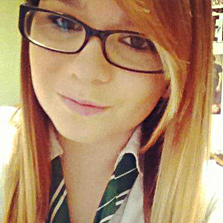 |
|||||
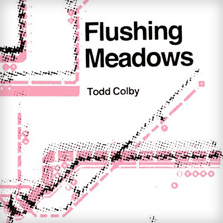 |
|||||
|
ZWACK: I went and researched the MTV appearance and was taken aback by how cool it was and how annoyed that I was about seven years too young to have seen it in real time. Speaking of media, you’re very involved in online media, with your own website and Twitter. Do you find this is the best way to get your work/ideas/thoughts out to the world? COLBY: I like to have as many options as possible for the play of my ideas and thoughts. I mean, if all of these mediums are available to us as writers, why not take advantage of them and manipulate them in such a way that the mediums actually complement the writing and even help change it in ways that would not have happened outside of that format or medium? ZWACK: One of your more recent tweets struck me as interesting: “Fact: Being a poet in the USA is a really odd thing to do in 2012. Fuck shit up.”’ This is a common saying among college kids, but as far as I know, not poets. Can you expand on what you mean by fucking shit up as a poet? COLBY: Fuck Shit Up: I just think in 2012 it is a really wacky time to participate in poetry. A great time mind you, but also a wacky time during this height of consumerism and art as capital and the value of works of art in both the art world and the film world and how marginalized poetry really is in that context. I mean, there is no inherent monetary value to poetry. But what this situation does is free us all, as poets, from that market-driven world and allows us to fuck shit up because we really have no one to answer to but ourselves and our peers as poets. We’ll never get in that game, nor do any of us want to get involved in that game. So, yes, Fuck Shit Up every day. ZWACK: Good advice with a far better rationale. I came across a piece of your word art that said: “What I need to do is lighten the fuck up about a lot of shit.” Do you ever feel too critical of yourself or your work? COLBY: I wrote: “What I need to do is lighten the fuck up about a lot of shit” on a little yellow post-it while going through a tough and particularly sad breakup. I heard this voice say the line and thought, “yes!” that is exactly what I need to do! So I hung it on my wall, that little yellow post-it, and kept it there until one day I finally framed it and made it officially “art” using these large vinyl stick-on letters I get at Staples. Marianne Vitale, a dear friend of mine and a super wonderful artist, purchased the piece from me. About a year later she contacted me and said she needed a name for her art show and asked for permission to use the title, “What I need to do is lighten the fuck up about a lot of shit,” for her show. I was thrilled she found it compelling enough to use as the title. I can sometimes be hard on myself. ZWACK: It’s all part of the process, right? It means you care. I discovered an audio clip of your reading of the poem, “Cake,” and it was really out there, but in the best way. How do you speak so well when reading poetry? COLBY: I enunciate. I don’t rush over words. I savor them, allow their inherent magic to roll off my tongue pleasantly. There is a certain sensual pleasure to reading work aloud. I read other people’s poems aloud all the time in my apartment. There is nothing more intimate than feeling the breath of another writer passing through your body, your lungs taking in air enough to get a sentence out, forming words with the mouth that are then expelled in a way that can be recognized and savored. That this is even a basis for communication is amazing to me and very pleasing. |
|||||
|
Visit Todd Colby… |
|||||









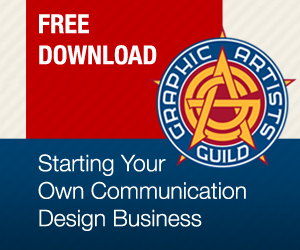
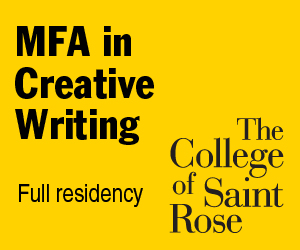
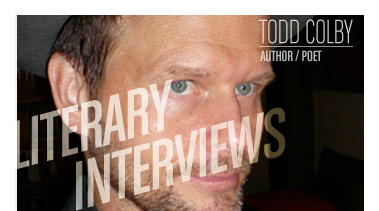
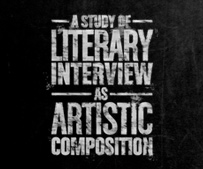














 Stated
Stated
Reader Comments